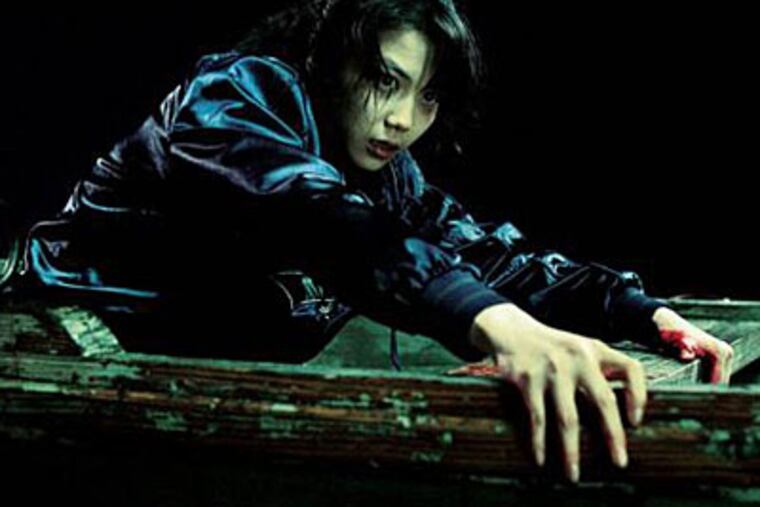'Thirst' starts with much promise, then devolves into repetitious violence
Do you dig the current vampire craze? Do you love Twilight so much you'd die for it? Then skip South Korean writer-director Park Chan-wook's violent, bloody Thirst, a genre-bending - if not genre-destroying - foray into the vampire myth. Thirst has more in common with Claire Denis' deeply disturbing sex, blood and angst orgy Trouble Every

Do you dig the current vampire craze? Do you love Twilight so much you'd die for it?
Then skip South Korean writer-director Park Chan-wook's violent, bloody Thirst, a genre-bending - if not genre-destroying - foray into the vampire myth. Thirst has more in common with Claire Denis' deeply disturbing sex, blood and angst orgy Trouble Every Day (2001) and Abel Ferrara's overblown Søren Kierkegaard-meets-Prince Vlad college seminar The Addiction (1995), than with Catherine Hardwicke's misty-eyed teen vamp romp.
Sadly, like both, Thirst begins with great intellectual and artistic promise, then devolves into a repetitious mess of teeth, blades, necks, bites, arterial sprays, sex, sex, sex and death.
The film's failure is sad, because no one seems better suited to make a grown-up vampire film than Park, whose fierce and fiercely intelligent Revenge Trilogy - Sympathy for Mr. Vengeance (2002), Oldboy (2003), and Lady Vengeance (2005) - is a grisly, gruesome yet oddly transcendent meditation on sin, vengeance, grace, and redemption.
Based in part on Emile Zola's Thérèse Raquin, a disturbing yarn about adultery and murder, Thirst features Song Kang-ho (Memories of Murder) as Sang-hyeon, a Catholic priest who ministers to hospital patients.
In its briskly paced, rewarding first 45 minutes, the film follows Sang-hyeon as he selflessly volunteers for a dangerous medical experiment, only to become infected with vampire blood.
Park fills Sang-hyeon's transformation with wicked jokes and visual puns. Things start to get tricky, and bloody, when the erstwhile celibate, fastidious clergyman falls in love with his old school friend's sad, ill-treated, frumpy wife, Tae-ju, played by 22-year-old actress-model Kim Ok-vin in a breathtaking turn.
The new couple's love blossoms in a segment saturated with magical realism. But soon enough, their relationship devolves into selfish desires, angry jealousy, and murder.
Park's Revenge Trilogy explored what happens to us when we are stripped of our humanity by forces we can't control. Thirst, which Park insists is a film about morality, treads similar ground. At its best, it underscores the wide chasm between Sang-hyeon the priest, whose life is committed to helping others, and Sang-hyeon the vampire, who can survive only if he robs people of their dignity, if not their life.
Far too long at 133 minutes, Thirst becomes slow, repetitious, and self-indulgent in its far more bloody second half. It seems to descend into the same vicious, selfish world of addiction that traps Sang-hyeon and Tae-ju.
EndText